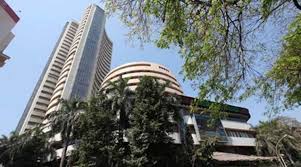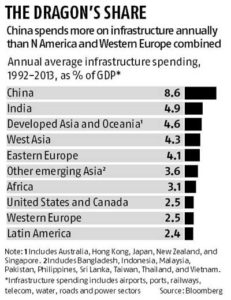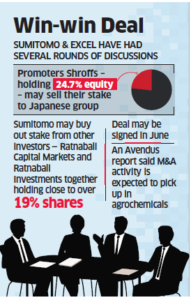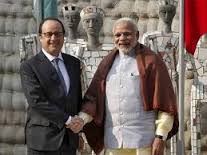
As many as 17 MoUs’ to bring in fresh industrial investments worth Rs 15,128 crore into Tamil Nadu were signed between a host of foreign companies and the Tamil Nadu government in the presence of chief minister Edappadi K Palaniswami on Wednesday.
These projects in areas such as commercial vehicle manufacture, electronics, footwear, information technology, medical equipment and energy are expected to generate 47,150 jobs in Tamil Nadu, an official release here said.
The companies which signed the MoUs are from Germany, Finland, Taiwan, France, South Korea, Japan, China, USA, Australia, UK and the Netherlands, indicating that Tamil Nadu continues to be a destination for foreign direct investment (FDI).
Palaniswami’s government has been taking a number of initiatives for economic revival. They include appointment of a high-power committee of economic experts led by former RBI governor C Rangarajan to chalk out strategies in the medium-term, the Industrial Guidance Bureau facilitating single-window clearance of investment proposals, the recent policy announced to boost production of medical equipment and drugs in the wake of Covid-19 and TIDCO offering a Rs.102 crore package to meet working capital requirement of 799 MSMEs’, an official release said.
The MoUs signed today include the following projects: Daimler India is to expand its commercial vehicle manufacturing at its Oragdam factory in Kancheepuram district involving an investment of Rs.2,277 crore, creating 400 more jobs.
Finnish firm Salcomp will invest Rs.1,300 crore in the Nokia special economic zone in Sriperumbudur to manufacture mobile phone components, to generate 10,000 additional jobs in Kancheepuram district and this project would help to rejuvenate the Nokia SEZ in that district.
The MoUs further include Rs. 900 crore investment by Japan’s Polymatech Electronics to make semiconductor chips at the Oragadam SIPCOT industrial park, a Rs.350 crore joint venture footwear manufacture project by Taiwan’s Chung Jye Company Ltd and Aston Shoes, a Rs.400 crore industrial park to be developed at Mappedu in Kancheepuram district by Australian firm, Lai Investment Manager Pvt Ltd., South Korea’s ‘Mando Automotive India Pvt Ltd. to invest Rs.150 crore in Pillaipakkam SIPCOT industrial park in Kancheepuram district, Netherlands’ Dinex to invest Rs.100 crore in the Mahindra City Industrial Park in Chengalpattu district for auto-components manufacture, a 750-mw gas-based power project at Ponneri in Thiruvallur district by Indo-UK joing venture, Chennai Power Generation Limited’ involving an investment of Rs.3,000 crore, and France’s IGL India Transplantations Solutions Ltd to invest Rs. 18 crore in medical equipment in SIPCOT park at Cheyyar in Tiruvannamalai district.
Down south in Thoothukudi and Tirunelveli districts, a huge investment of Rs. 2,000 crore is envisaged by Vivid Solaire Energy Private Limited of France, to manufacture wind mills equipment, the release said. The USA’s HDCI Data Centre Holdings Chennai LLP will invest in an IT project in Ambattur in Chennai involving an investment of Rs. 2,800 crore, it said.
While Singapore’s ST Tele Media will invest Rs. 1,500 crore in a new IT project in Chennai, wind mill components will be made by Germany’s Baetter in Chennai involving an investment of Rs.210 crore. Besides there, there are four more industrial investments in the pipeline in Kancheepuram, Thiruvallur and Chengalpattu districts including China’s ‘BYD India Private Ltd’, to invest Rs.50 crore in an electric vehicle manufacture project.
Mahindra Origins in a JV with a Taiwanese company, TJR Precision Technology Company, will invest Rs.46 crore in making precision components at Ponneri. Further, USA’s Lincoln Electric will invest Rs.12 crore in an R & D Centre at Mahindra Industrial Park in Chengalpattu district, the release added.
Top officials including Chief Secretary, Mr. K Shanmugam, Industries Secretary, N Muruganandam, State Guidance Bureau managing director, Ms. Karkala Usha, its executive director Mr. Aneesh Shekhar, and representatives of the various companies were among those who were present on the occasion.
Source: Deccan Chronicle







